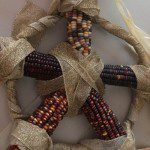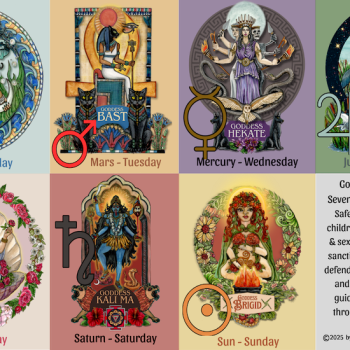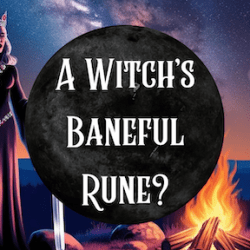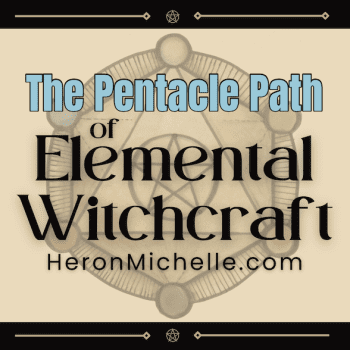“Have you always been a pagan?” is a question I’m asked regularly. The answer is tricky.
Have I always been pagan? Yes.
Was I born into the culture and religion of paganism? No.
When did I start practicing paganism? That was a long trip that took about 10 years to unpack, but it begs that I tell you the story of my first encounter with a Wiccan Priest in the wilds of South Carolina, and how it changed my life forever.
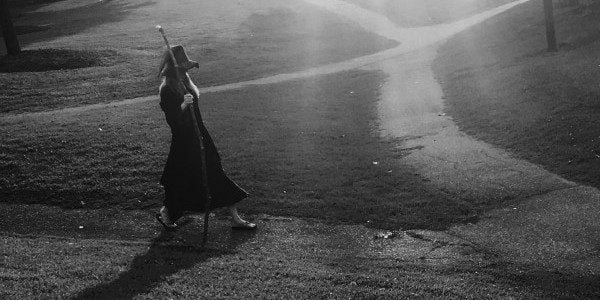
The Rock From Under Whence I Came
In order to appreciate how far I’ve come, I first have to tell you where I started. I was born into the Protestant Christian churches of my mother’s side of the family. Those ranged from the reasonable Lutheran church of my Grandparents, to the hellfire and brimstone of the Southern Baptist church that I remember the most.
My mother’s zealousness eventually landed us in a cult-ish Evangelical Pentecostal church, that was deceptively inclusive while sowing subversive seeds of racism, misogyny and homophobia. I was dragged there against my will until I could wage an all-out spiritual rebellion against her at 17. I tell parts of that story in Salvation of a Southern Witch.
My mother was unrelenting in her attempts to “cast out the demons” of my obviously wyrd and radical orientation, and “save me” from the inherent otherness that I’ve always been. She had me baptized in three different denominations, in two different countries, but it clearly didn’t do much to claim me for Jesus. Despite all her efforts to save me, her fires actually honed my personal sovereignty into the sword that would enforce my own Will. Eventually, I turned that blade against her. Yet, her sheltering control over me as a child meant that I emerged from under her fear-bound rock as a young adult with no real idea about my spiritual options. I just knew that in her Christian “with us, or against us” world, I must be against them. That was a terrifying place to land.
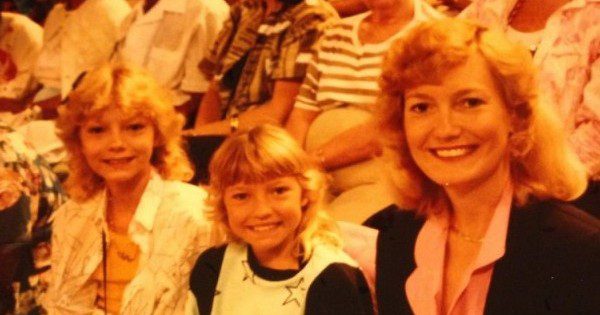
The paradigm in which I was raised presented only three choices:
1.) “With us:” Their specific brand of Christianity: The only correct way to live that worshiped Jesus as the son of their only, ONE TRUE God, the God of Abraham. If you played your cards right, and loved Jesus with your eyes closed, you would get to rule over everything in the Kingdom of Heaven some distant day. Of course, that denomination thought all the other “Christians” were doing it wrong, and likely going to hell on a technicality, so really no one was safe.
2.) Other Abrahamic branches of Judaism and Islam: They were like distant cousins we acknowledged but didn’t much like. Muslims worshiped their same god, and Jesus was a Jew, so both were grudgingly acknowledged as competing religions, despite their obvious state of confusion. <snark> But, because they knew about Jesus, yet rejected the notion that he was the one and only golden ticket into the heavenly playground, only the fires of damnation awaited them, alas.
3.) “Against us:” This included all the other people on earth, all lumped together and characterized as those in league with Satan – even the ones who’d never even heard of Yahweh, Jesus or Satan. Everyone in this category was headed directly to the fiery pit of doom unless some good Christian got to them first to “save them.” If they could be coerced into disavowing all they’d ever known, and forsaking their “false” gods, they had a chance. Otherwise, their errant followers got a one-way ticket to Dante’s doorstep.
The Preachers in the pulpits of my childhood would refer to everyone in the “against us” camp, including the “godless atheists,” as the pagans, or interchangeably, heathens. Until I was 18, the only time I’d heard the word “pagan” in a modern context was with a sneer and cry to battle.
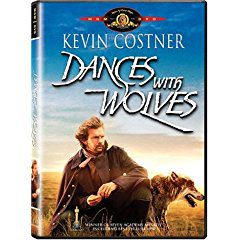
I knew deep down in my soul they had it all wrong–that fearfulness was not the way. I was willing to risk it all rather than stay among them. I struck out on my lonesome, and assumed I had a private nameless religion of one.
Mind you, I was a teenager primed for rebellion, and convinced that no one in the world could possibly understand me. <chuckle> Depression and existential panic were constant companions. I was desperately lonely and lost, self-loathing and seeking atonement in all the wrong places.
Excavating Paganism through Books and Movies
Dances with Wolves
Just as I was breaking with my mother’s religion, the movie Dances with Wolves with Kevin Costner was released. I went back to see it several times, heart longing in kindred sympathy with native people and love of what was portrayed of them there. I know that film was criticized for inaccuracy, but it delivered an important message to me when I needed it.
I am of English, Celtic, French and German descent. The more history I learned, the more horrified I was to be descended from European Christian people, and the angrier I became with Christianity in general. The dissonance within me was overwhelming, and like the white characters in the movie, I wanted so much to be enfolded into the beauty of an unspoiled tribal culture. I wanted to live with personal sovereignty, natural rhythm and respect for all. Sadly, Native American spirituality didn’t feel like something I had any right to choose.
I was angry about the cultural violence my own ancestors inflicted in America, but I knew they too had been forcibly Christianized at the sword-point of the invading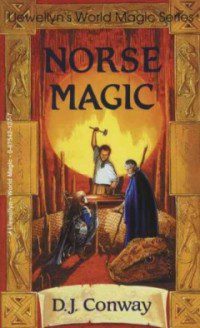 Roman armies a millennia before. So, I began an excavation to discover what religions my European ancestors practiced. I found similarities to the Native Americans that I admired, but also a rich culture and mythology, mystery, power and intrigue that was unique to the lands from whence my own people came – and that was comforting.
Roman armies a millennia before. So, I began an excavation to discover what religions my European ancestors practiced. I found similarities to the Native Americans that I admired, but also a rich culture and mythology, mystery, power and intrigue that was unique to the lands from whence my own people came – and that was comforting.
Not that my ancient ancestors were all pacifist environmentalists, far from it, but I found some absolution from that treasonous worry I felt over abandoning my family’s traditions, because I had “family” who saw the world more like I did, 1500 years ago and more. However, in all my research it never occurred to me that those religions were being resurrected and practiced anew by modern people. Even when I DID stumble upon a modern book about paganism, the blinders of bias instilled in me by the church kept me from comprehending what I held in my hand.
Norse Magic by DJ Conway
My friend Jill loaned me her copy of Norse Magic by DJ Conway, also published in 1990. I have no idea how she got her hands on this paperback book, but both of us assumed it was about the ancient Norse religion that was now dead and gone. I remember reading it enough that I picked up on the elemental correspondences in magick, which fascinated me, but not once did I notice that this book was blatantly about the modern “Wiccan” synthesis with Norse religion.
The Mists of Avalon by Marion Zimmer Bradley
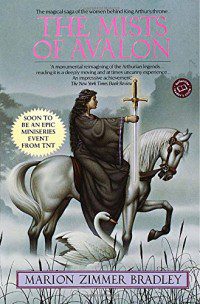 To escape my disenchantment with life in my mother’s home, I hid within the pages of historical fiction and fantasy novels–the more magic the better. I fell in love with the Arthurian tales, and read every version of them I could find. As destiny would have it, the novel The Mists of Avalon by Marion Zimmer Bradley, fell into my hands; I devoured it.
To escape my disenchantment with life in my mother’s home, I hid within the pages of historical fiction and fantasy novels–the more magic the better. I fell in love with the Arthurian tales, and read every version of them I could find. As destiny would have it, the novel The Mists of Avalon by Marion Zimmer Bradley, fell into my hands; I devoured it.
One weekend I holed up with this book and barely slept or ate, just read my way back through time. It was a look through the eyes of a pagan priestess at the changes happening in 5th century England. The tides were turning, as the ebb of the old gods receded under the conversion to Christianity. The Druid Merlin, and the priestesses of the Great Goddess from the mystical Isle of Avalon, orchestrated the emergence of English kings before receding into the mists. This story ended with Avalon, and the time of the Goddess’ priestesshood, disappearing into the mists and from the world.
I cannot adequately express spiritual kinship I felt with the priestess Morgaine in that book – as she was trained, and took up the powers of the Great Goddess–it was like reading my own dreams. My soul ached to find such a temple, such training. That was MY religion, the ideas and truths I’d long thought were my own private fantasy, played out upon the page.
As I closed the back cover I wept in deep mourning that I could not become a Priestess in Avalon, or know the Goddess as they knew her. I despaired that this was all a fiction from a distant past that I could never experience for myself. For a while there, I was in an existential tailspin. Little did I know, the author herself was a modern pagan Priestess who had integrated into her historical fiction hints at her own practice…that it WAS possible, and that the Great Goddess was right there beckoning to me through her story.
A Wiccan encounter in the wilds of South Carolina
Just as I turned 18, my love of fantasy and history sent me looking for Renaissance Fairs, and along the way I discovered the Society of Creative Anachronism.
The Society for Creative Anachronism is an international organization dedicated to researching and re-creating the arts and skills of pre-17th-century Europe… Members, dressed in clothing of the Middle Ages and Renaissance, attend events which feature tournaments, royal courts, feasts, dancing, various classes & workshops, and more.
My friend Jill and I made costumes and attended every event we could get to that spring of our Senior year. There we were at a tournament in our hometown of Greenville, South Carolina, dressed as fair maidens from the 12th Century, and I’m sitting there embroidering a design I’d come up with from the elemental magick I’d read about in the Norse Magic book.
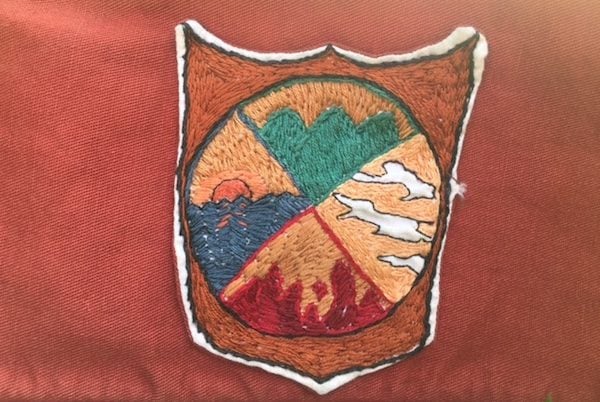
This pleasant looking fellow walks by and strikes up a conversation with me. “That’s nice work!” he says, pointing to the embroidery. “I like the way you depicted the elements. So you’re a pagan, too?”
I recoiled in horror. “NO!” I clutched the embroidery to my heart, and reacted exactly like you’d expect an ignorant child raised in The fear and admonition of the Lord to react. “WHY WOULD YOU ASK ME THAT!” I demanded in a fury.
I remember the moment like it was yesterday. He jumps back a bit, startled. He threw up his hands defensively and eyes went wide like he was looking at a crazy person. “I’m sorry. I didn’t mean to upset you. My mistake.” And away he strolled on about his business, looking like a perfectly reasonable man in his mid 20’s that couldn’t have had an “evil” bone in his body. His smile was so easy and genuine, his energy so balanced, quiet and unassuming. He was the most chilled out guy at the event, but that brief encounter with him was a lightening bolt straight through me!
For the rest of the event I watched him, and eventually started talking to some of his friends around the bardic circle and fire that night. Too chicken to ask him directly, I showed his friend the embroidery and asked him why that would imply I’m a pagan.“I don’t know. Tylluan is a Wiccan Priest. Wiccans are pagans, so he’d know better than I would.” He said this outrageous alien thing so matter-of-factly, as though he hadn’t just dropped a nuclear bomb into my world.
“But he seems so nice. I can’t believe it. He doesn’t look like a devil-worshipper at all,” I blurt out like an idiot.
His friend burst out laughing at me. Then he drug Tylluan over into the conversation and told him every word of my humiliating confusion. Thankfully, Tylluan the Wiccan Priest was a really nice guy who set me straight in the gentlest way. He went on to loan me two books, The Spiral Dance by Starhawk, and Drawing down the Moon, by Margot Adler. To read those books was like awakening from a beautiful dream about the deepest desires of my soul, to know that it was absolutely real and waiting for me the whole time.
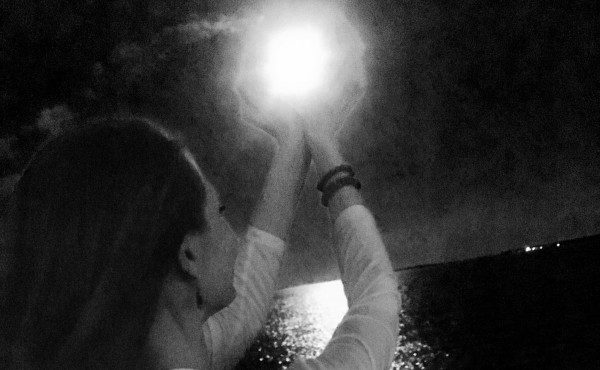
My Pagan Tribe
To discover this neo-paganism was me finding out I had people–really good people just like me. I did have a tribe that also knew the things I had intuited and they didn’t think I was crazy or “sinful” at all. This was the best kind of salvation. Tylluan and I became fast friends. He was a big brother to me, who would take very good care to help me navigate my own way as I began studying modern witchcraft. It took me the next 10 years to unpack and process the baggage of my childhood, all while studying privately, still hiding from my Christian family in my lonely broom closet. I’ve written more about that here: Broom Closets and Bible Belts.
By the time I turned 28 and had my Saturn return, I knew I was called to become the priestess I’ve always dreamed of being. Via the birth of my first child, I realized that I could not remain solitary or passive about my inherent paganism any longer, but that is a story I’ve told here: From the Ashes a Fire shall Be Woken..
I believe that paganism is like an orientation; its just your natural state of being as a human here on earth, regardless of what word you use to describe it. To find an identity in “paganism” is to acknowledge your true self. I was lucky enough to discover what other people like me happen to call it. Then I could find my tribe and share in that expression in a way that brings me happiness and fulfillment.
I’m happy that I found my way home, and I remain grateful to Tylluan for being the light in the darkness that I needed. I’ve made it my own sacred work to help guide others home to their true selves. I keep the fires lit in the lighthouse of The Sojourner, and I teach openly whenever and wherever I am called. I adore being the first witchy priestess that a seeker encounters here in the wilds of NORTH Carolina. That is how I pay forward that gift he granted me.
In gratitude,
~Heron Michelle



